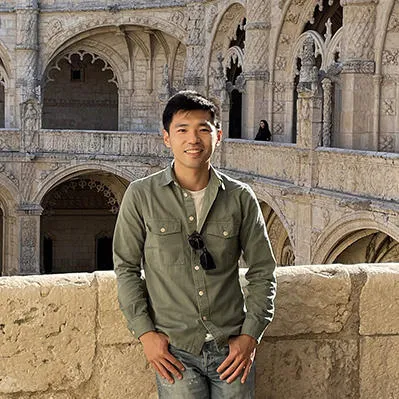
What first attracted you to the field of Mathematics?
When I was a kid, I was always curious about mathematical concepts, and often spent hours solving different problems. I found it was (and still is) a challenging but incredibly rewarding experience!
Tell us about something you are working on at the moment – what is exciting about it?
Currently, a lot of my work is focussed on the field of causal inference. This is a research field which tries to understand and determine the casual relationship between variables or events. It aims to answer the question “What is the effect of one factor on another”. Specifically, I am working on developing novel statistical methods for causal inference in a Bayesian setting. The exciting thing about this research is that it plays a crucial role in helping researchers and decision-makers make informed choices in various fields.
For example, causality is a significant issue when examining the relationship between COVID-19 cases and public transportation. Higher COVID-19 case rates in areas with extensive public transportation networks might be attributed to increased interaction among individuals, but it could also be influenced by other factors like the strength of lockdowns in the local area or the percentage of vaccination rates. Determining causality in this complex scenario requires careful consideration of different factors and the implementation of rigorous statistical research to establish a clear cause-and-effect relationship between COVID-19 cases and public transportation.
In addition, I also work on developing statistical modelling approaches to chart the health of individuals as they age. Demand for medical services is at all-time high in our aging society, and sources like healthcare applications are increasing the amount of data healthcare practitioners have at their disposal. This large volume of data, if it is to be used to improve care for patients, needs to be interpreted and understood properly. For example, for patients with chronic illnesses, healthcare system managers want to know how well they are being managed in the system so that they can make timely adjustments to their treatment if needed. One of the exciting things for me, as statistician, is that there are many statistical challenges in modelling for this kind of data data, from irregular collection to scenarios with multiple outcomes. Overcoming these challenges and building a realistic solution into models is the focus of my current research program.
What do you think is the biggest misconception people have about Mathematics?
I think one of the misconceptions people have about mathematics is that mathematics has no real-world application. Most people think that it's only about abstract letters, numbers, calculations, and rote memorisation of formulas. While these aspects are certainly a part of mathematics, they represent just a fraction of what mathematics truly encompasses. With my research, I can address real-world problems, such as what is the impact of speed cameras on traffic accidents and how well patients with chronic illnesses are managed under the current healthcare system.
What advice would you give to someone considering studying Mathematics?
Stay curious! Always ask questions as there are numerous unsolved problems waiting to be tackled.
Aside from Mathematics, what do you do in your spare time?
When I'm free, I like playing tennis, swimming, and hiking. I also enjoy watching shows in the West End.